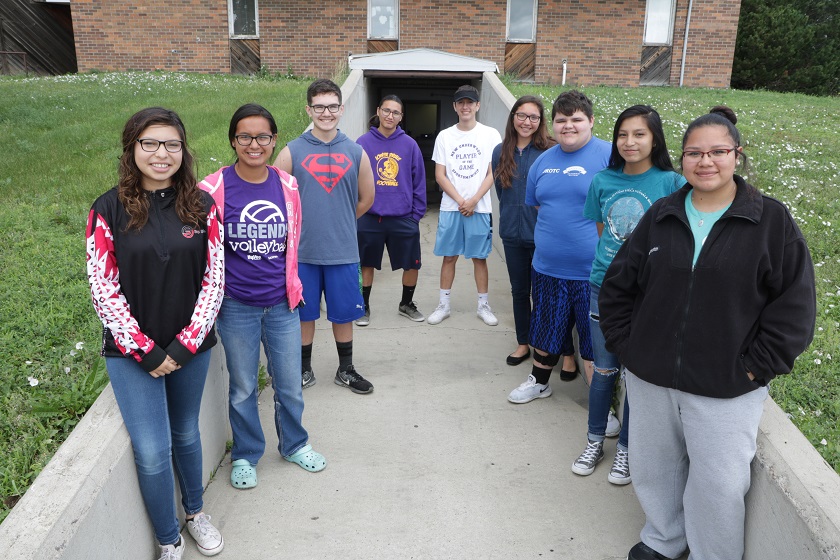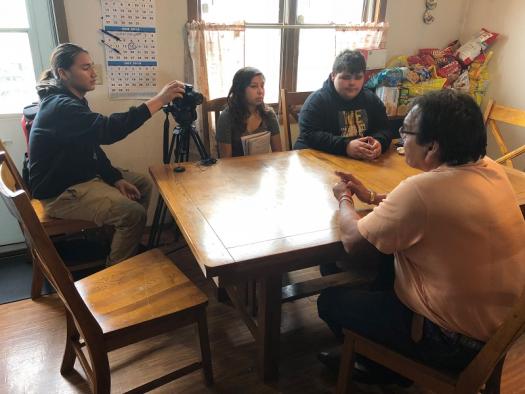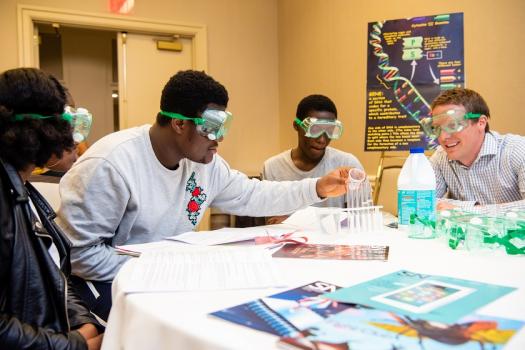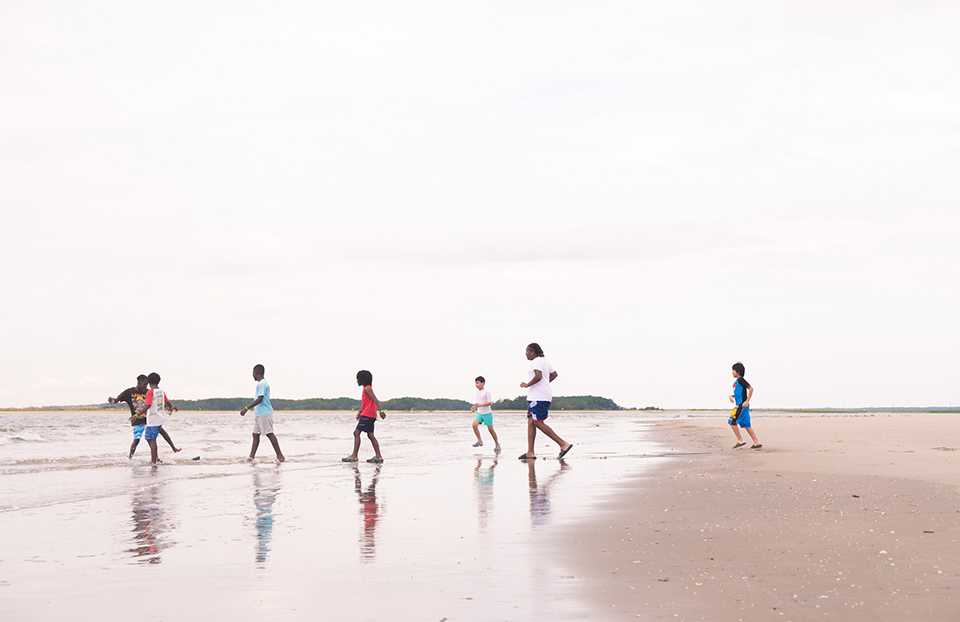Advocate Program, STEM Outreach
Two grants, one purpose: STEM education in Native American communities

Devon Riter was named a Society Advocate in May 2018. Two months later, his organization, Lower Brule Research, also secured a STEM Action Grant of $5,000, another program of the Society, dedicating more time, training and resources to encourage Native American students to enter STEM fields. Both programs aim to bolster STEM education and increase participation among underrepresented populations. While the former is done through individual mentors and the latter identifies exceptional organizations leveling the playing field for STEM education opportunities in underserved areas, Devon has shared that these activities are not mutually exclusive.
As a teacher at Lower Brule Tribal School, Devon started Lower Brule Research with some of his colleagues in 2016 as a way to support learning opportunities for students over the summer.

In an interview with South Dakota Public Radio, Devon elaborated further. During the school year, it holds regular community meetings to pinpoint subjects of interest. Then over the summer, the organization employs middle and high school students, along with community educators and college mentors, to plan, conduct and analyze their own experiments based on input and feedback from the meetings. The process offers students with hands-on research experience, while also allowing them to address important issues around community health and sustainability in a culturally responsive way.
“Native students face a host of unique challenges that are beyond their control. The history of Native people on our continent is dominated by a story of racial injustice over the past centuries. I think it is really all of our responsibility to understand how this history came about and what it means for our country today. We have a lot of learning and connecting to do in order to understand what is a fair and just path forward,” reflects Devon.

As an Advocate, Devon didn’t just receive a grant. The program also provided him with a mentor and a cohort of educators to regularly discuss the successes and challenges he and his peers faced in preparing promising students for science competitions. “Being able to share and connect with these other educators has been great. When I’m more focused and motivated, my students are as well,” says Devon.
When it comes to research topics, Devon gives his students a lot of flexibility in choosing what they want to research. “The only requirement is that the topic is important to them and the question they will answer will be beneficial to themselves or their community,” Devon explains. This year, they are working on subjects ranging from bioreactors to black holes.

The STEM Action Grant, in addition to the Advocate Grant, has helped Devon work towards rectifying previous wrongs. “When you look at our society and the opportunities for Native American students, you can get a very clear sense that something isn’t right. Whether you look at disparities in college enrollment or disparities in STEM careers, it becomes fairly obvious that something needs to change. When you connect with Native students and educators, they will bluntly tell you how necessary it is for us to begin enacting change as soon as possible. Change requires effort, time and resources and so the STEM Action Grant is really an important resource we are using to help understand and implement the changes that are needed.”
The funds from the STEM Action Grant are being used for a program where college students enrolled in a mentoring course at South Dakota State University are paired with younger students. In helping the younger students complete their community-centered STEM projects, the college students also build cultural competence. The long-term goal of this endeavor is to reduce racism on college campuses.

For others who want to support Native students in STEM, Devon believes there are two main things especially non-Native people like himself can do. “The first thing is to educate yourself about the history of Native people, to learn about the role of race in society and how you personally are impacted by these things. There are so many great resources out there—especially by Native authors—that can help us understand why STEM educational disparities exist for Native students. The second thing is to build meaningful personal connections with those who are culturally or racially different from you. This is one of the deepest and most important types of learning you can do, and can really reshape your understanding of the racial disparities that exist in our country, whether those are within STEM education or somewhere else.”
As there is no easy solution, these efforts are ongoing and Devon is committed to advance what he started. “I love working in Lower Brule and teaching at the Lower Brule Tribal School. The relationships I’ve built with students, parents, and other community members over the years has really made the experience something I’m excited to continue into the future.”
The 2022 Advocate Program application deadline is March 6, 2022. Apply here.


